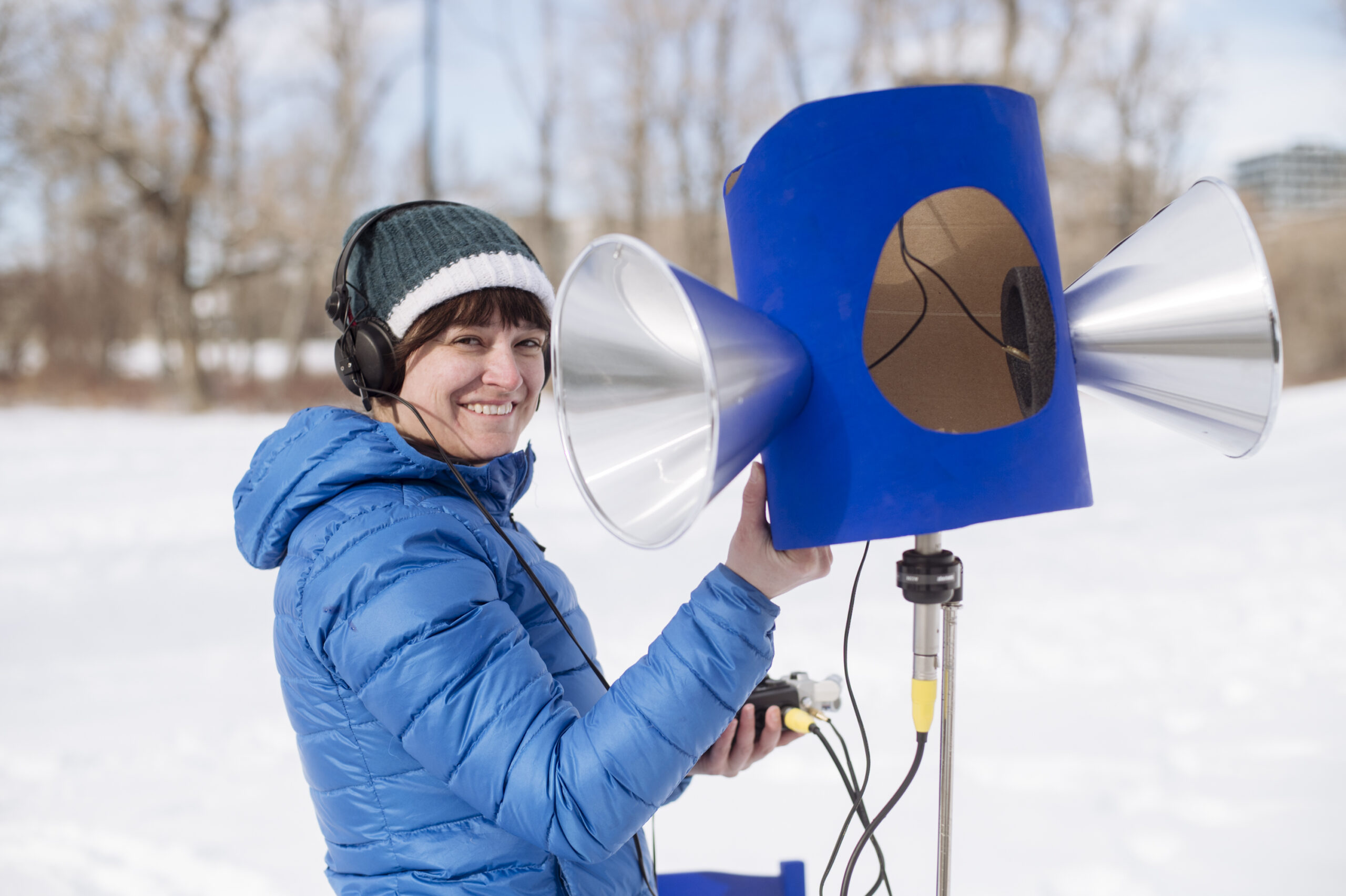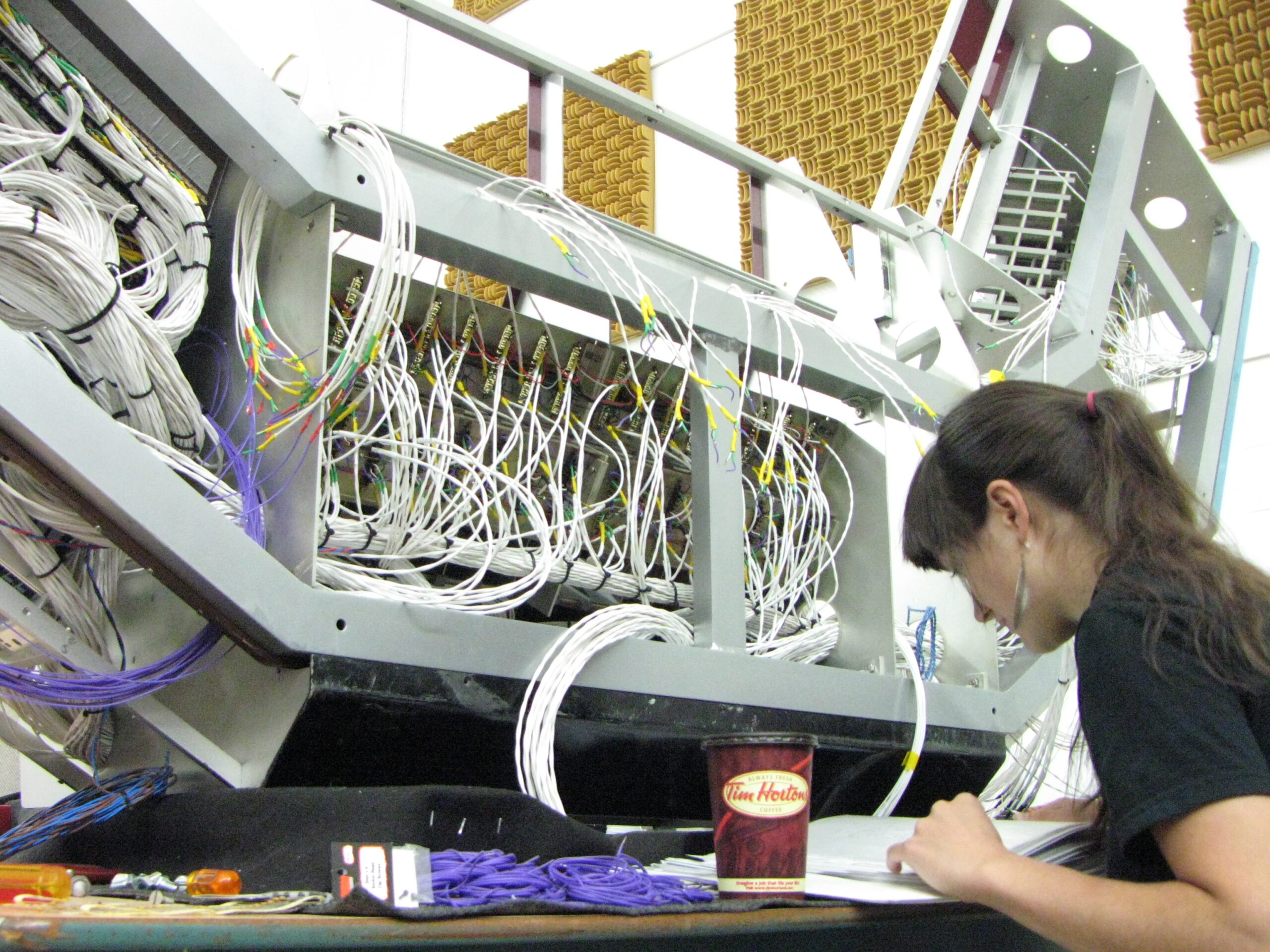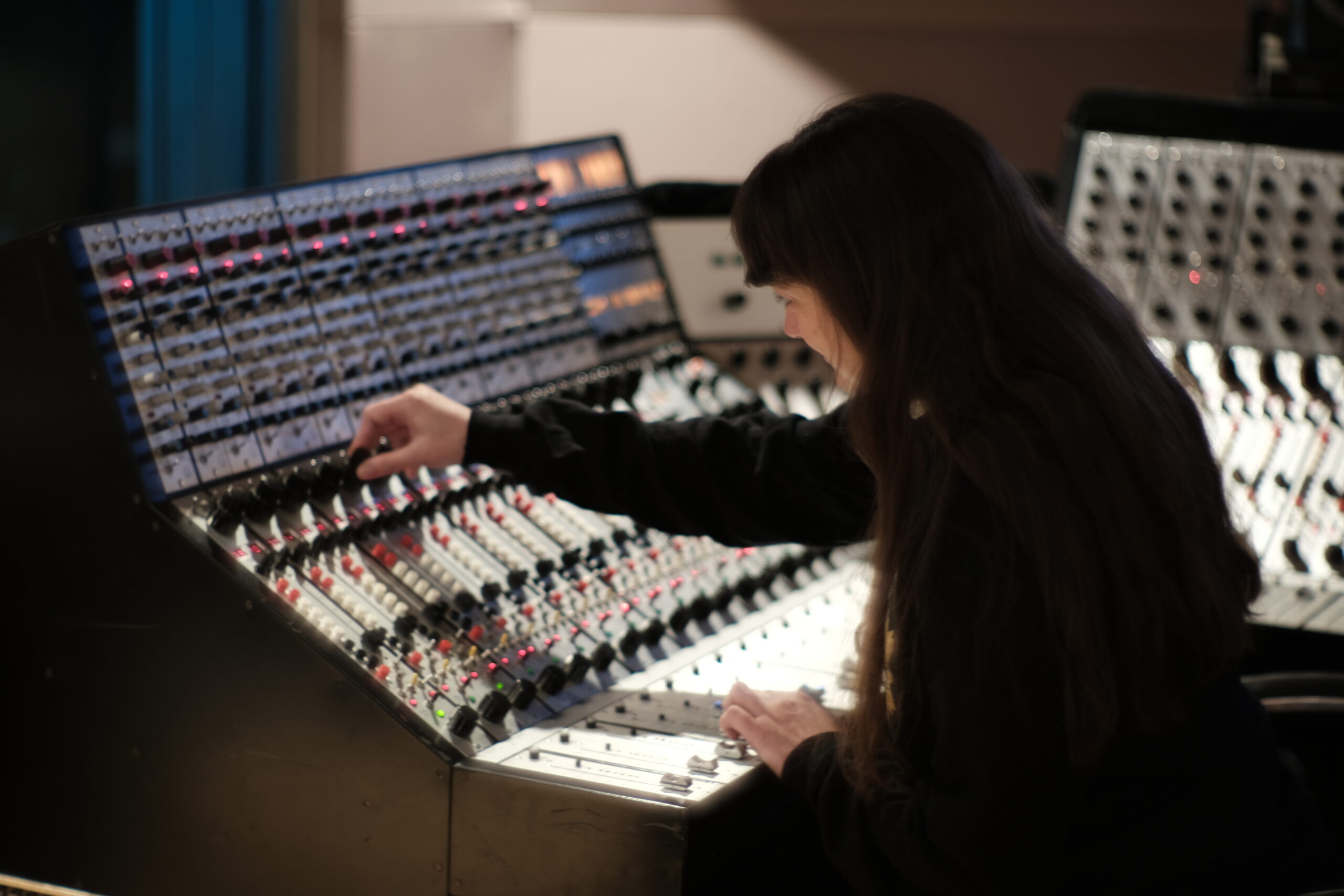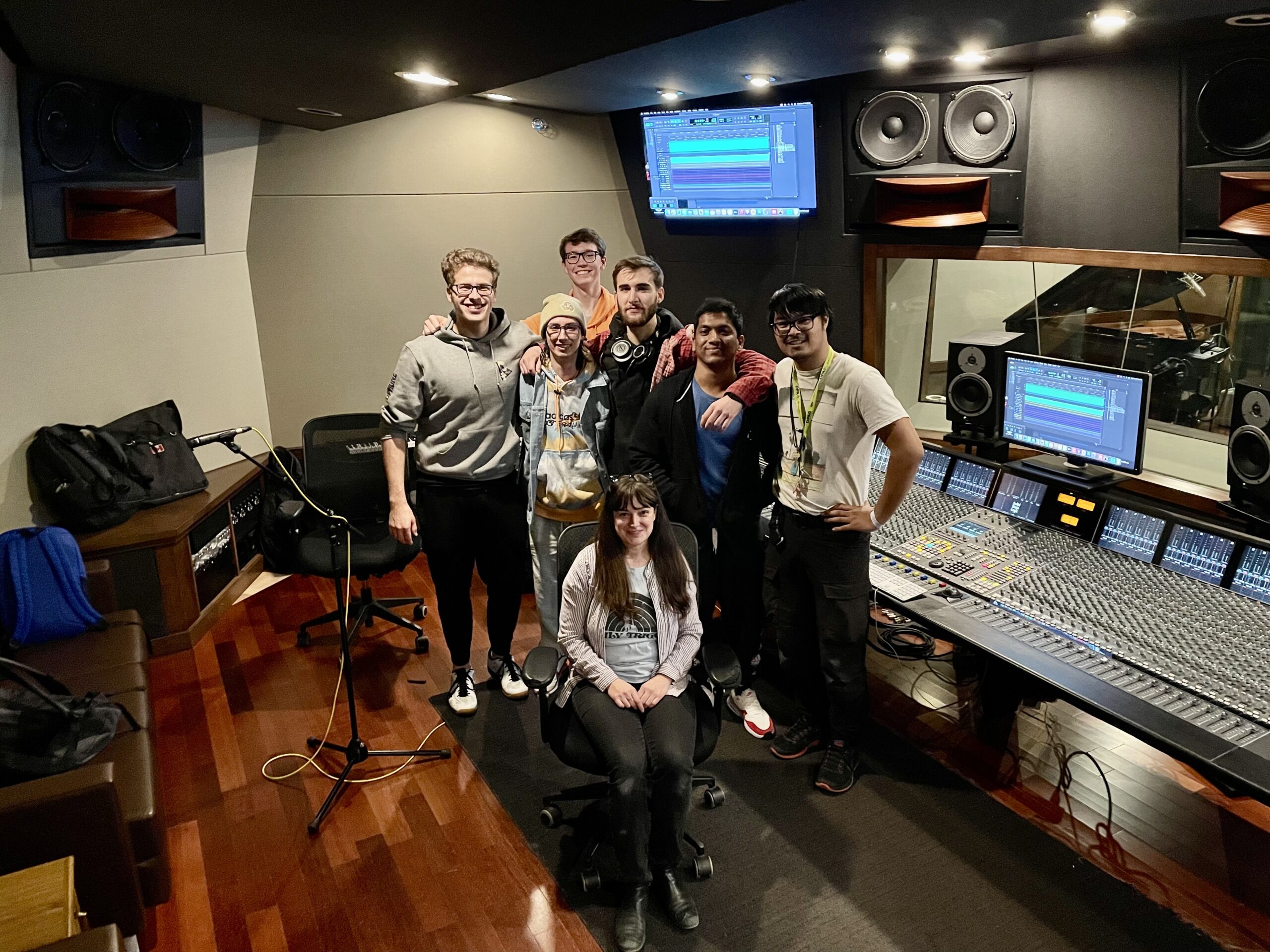Starr McLaughlin is an industry gem, casting a bright light on everyone she encounters. With 10 years of experience under her belt, she’s garnered an impressive resumé that includes indie-rock sensation Japanese Breakfast, Alex G, and most recently Jessie Murph. She is also a cardholder of IATSE Local 917 and Local 8.
Starr grew up in an audio-centric household with both parents having met while working in the entertainment department of an Atlantic City casino. It was destiny: by the end of high school, she knew that she wanted to pave the way for a career in live sound. She earned her Associates in General Studies from Atlantic Cape Community College and was later accepted to the University of the Arts in Philadelphia for Music Business & Entrepreneurship, though she chose not to attend. “While I value everything I learned, my college studies had very little to do with my success today.”
Delving in, Starr shares her story, pairing it with relatable wisdom and excellent gear advice:
How did you get your start in the audio field?
I want to preface with how lucky I am to have parents already in the industry. Although I had to work hard on my own to make anything of myself, having my parents give me advice and connect me with certain people along the way was a huge help. At the age of 17, I started volunteering at a local Performing Arts Center and a church. I got on the overhire list with my local union when I was 18, took calls as a stagehand, and eventually got into doing part-time audio visual (AV) work in the Atlantic City casinos. I got a full-time job at the Hard Rock Casino in Atlantic City, and this is where I sunk my teeth into mixing.
What inspired you to pursue audio as a career path? Were there any significant life events that led you to it?
I can pinpoint the exact moment when I decided this was what I wanted to do. I was running sound for my high school’s spring musical, Hairspray. The teacher who was in charge of the tech club had a gig, so I was left alone to, y’know, ruin the show. I had no clue what I was doing. Signal flow was a brand-new concept, I didn’t know what a high pass filter was or that I could have stacked a list of snapshots. Also, side note, the high school had an Avid Venue SC48 (it was an Avid-sponsored school, weird right?) Anyway, here I am, with 22 wireless Lavalier mics and near-zero knowledge of how wireless works (Disney magic, maybe?). The show, from what I remember, was rough tech-wise. Like a lot of feedback, late cues, etc. But there was this one moment, during ‘I Know Where I’ve Been’ where everything sounded great. I remember getting chills and thinking “This is it, this is what I want to do.”
How did your early experiences/internships/jobs help build a foundation for where you are now?
Working as a stagehand for the casinos made me quite versatile. I can be a decent helper in any area, especially if it’s throwing up a fast fold or lining a ballroom with pipe & drape. Being willing to jump in on any crew kept the calls coming in. It also taught me the correct terminology for various things outside of audio, as well as all the colloquialisms we love to use.
When I started doing more AV calls, I met my friend Scott, who did part-time AV at the casino but was a full-time AV installer. I began working for him in 2016. Doing installations was a whirlwind of knowledge. You have to learn all the different avenues of signal flow for building racks. It was also helpful to learn the theory behind designing systems such as Q-Sys, Audio Architect, Media Matrix, or Crestron. Your design has to make sense to the end user – who could be anyone. I found that philosophy very helpful later on doing monitors. Working installs afforded me the luxury of taking my time. Even under deadlines, it’s typically a longer timetable than a standard live gig which is: get in, do a show, get out. It was nice to sit in an office, take my time building racks correctly and to code, and having Scott to ask any questions too.
When I got a full-time job at a casino, I started on the AV crew. I was on the Hard Rock’s opening crew, so we were the first people on the floor fixing problems that the installers left for us. We had stages that had no power, and venues that had no stages in which they wanted 15-piece bands to play. During my first few months there I worked 70-100 hours a week. It was insane, and while I don’t think anyone should have to overwork themselves, I got a boatload of experience. There were many trials by fire and I managed to keep landing on my feet. Eventually, I was moved over to the audio crew and got to start working in the bigger rooms as opposed to just mixing in lounges.
What were some important lessons you learned early on in your career?
Always, always, always ask questions! SO important! People respond so much better to you admitting when you don’t know or are unsure about something, than doing it wrong.
Ask if someone is ok to lose power. This applies to unplugging anyone’s gear, even if it’s someone’s pedalboard, ask first please!
Silence is golden. I love to talk to people when working, but my gig is my number one focus. I always try to make sure I am attentive and ready to break off a conversation and focus on the gig.
Stay off the phone. If an artist, manager, or anyone looks over to someone for something and they’re buried in their phone, it is a bad look. At the gig, the number one focus should be the gig. Break time is for phones.
Be neat! I am a stickler for tidiness, especially on stage. Keep your cables neat, keep the patch bay neat, and tape down tripping hazards (typically after line check). Cables are your lifeline. You need to be able to see where everything is going and be able to unpatch, repatch, and replace in record time.
With velcro cable wraps, the felt side of the velcro should be facing out. If the pointy side is out, everything will stick to it and that is disgusting.
Touring wise: Don’t take long showers if people are waiting to shower. Literally, no one will ever let you live it down. Time yourself on your showers and get it down to like, at most 10 minutes in the shower, MAYBE another 10 to moisturize, dry off, and stuff. If you absolutely cannot cut down on time, offer to shower last. Learn from my mistakes!
Try to remember people’s names. Keep a note somewhere (physical or on your phone) of who you are working with. Calling someone by name shows so much respect, and they will want to work harder with you if you treat them with respect.
Learn to swallow your pride. This is a service industry, and the musician is always right (even when they’re wrong). A band that is paying you to help them, wants you to help them, they don’t care to hear all the technical jargon of why you can’t help them. Some days, the only acceptable response is “I will work on fixing that right now.”
You’re never going to stop learning new things. No one knows everything, and that’s ok! Take everything as a learning experience.
Did you have a mentor or someone that helped you?
Johnny Modugno at the Hard Rock in Atlantic City. I got to be Johnny’s A3 numerous times while I was full-time. Johnny taught me many skills, but most importantly he taught me his philosophy behind being a “monitor engineer.” He would always say “Personality is 95% of our job” and “always act like you’re into the music. When a band member looks over for something, you want them to see that you’re into what they’re creating.” While patching in the split he would say “Starr, these are your lifelines. When you get a tangled mass of whips, take the time to clean it up. It’ll save you later.” He is the epitome of an UN-grumpy soundman and brings zen, happiness, and badassery to stage left. Johnny is also just an absolute pleasure to be around, he is so passionate about the work he does. I aspire to be like him, he’s my top role model and I hold his philosophy with me and push it forward wherever I go.
Scott Coumbe, of M. Cramer & Associates, is a very notable mentor, critic, cheerleader, and friend of mine. Scott was one of the first people I met on my very first day doing AV at Harrah’s in AC. Our first interaction was kinda tempestuous, honestly. His very first words to me were, verbatim: “I wish you were better at your job.” (Yes, that made me cry). Soon after we met though, I began accompanying him to his installs. He taught me how to build racks, make cables, and program and integrate systems. He’s someone I can call upon at a moment’s notice to help troubleshoot, get advice from, or simply chat with to pass the time. I can quite literally say I would not be where I am today if it were not for all the time Scott invested in me.
MJ Snelsire, of Hard Rock in AC. We affectionately call her “the den mother” because she takes such good care of everyone on and off the stage. MJ is one of the most bad*ss, kindest people I’ve ever met. She’s been mixing for over 40 years, starting at the age of 15. She had toured with acts such as Donna Summer before coming to start a career in Atlantic City. I’m pretty convinced she knows every colloquial audio term and piece of nomenclature that exists in the world. MJ walked into this industry, so we could run (she’s a runner, she even ran with the Olympic torch before). She’s faced numerous trials of adversity and has gone through hell and back because her passion shines brighter. MJ is smart as a whip and tough as a bull. She has always looked out for me. She helped guide the way and taught me how to cope with being the odd one out on the crew. I’m extremely lucky to have her to learn from, and I relish every chance I get to work on her crew.
Harrison Fore, FOH for Japanese Breakfast, Alex G and Alvvays, is also my husband. He is one of my biggest supporters, and I would have never started touring if it wasn’t for him. He trusted in my skills and brought me on as an A2 even though I never toured before. I love getting to learn from him and grow as engineers together. Even if he steals my shiny new gear and replaces it with his old raggedy stuff while my back is turned.
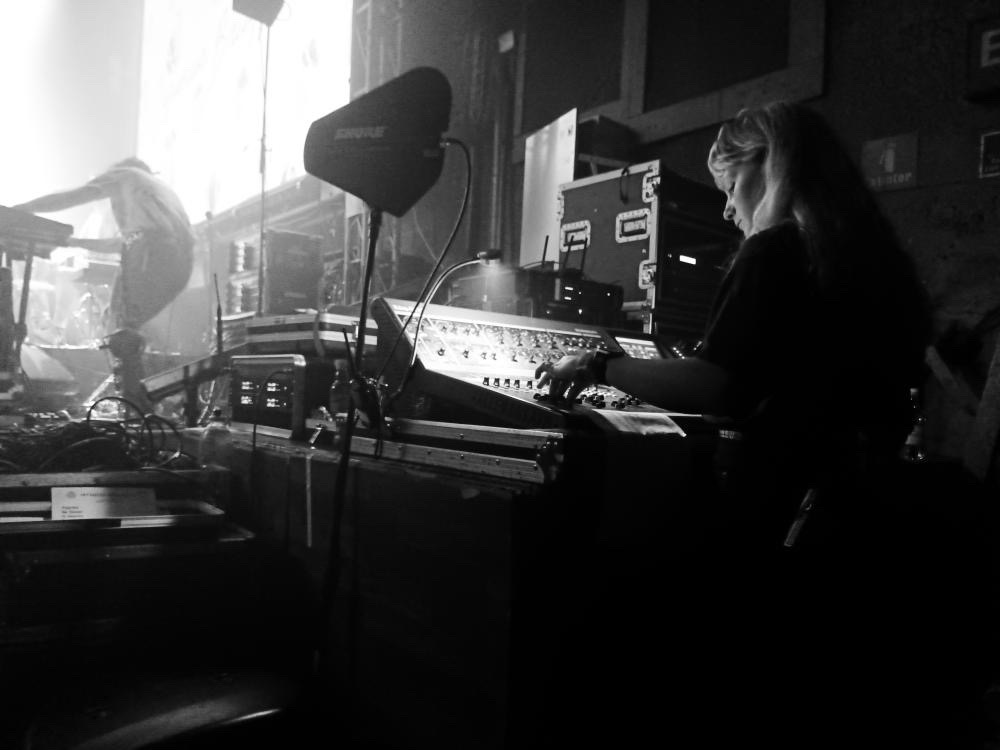
I know that you have experience in multiple environments, but tell me about a typical day on tour for you:
The following is a typical show day on tour for me with no funny stuff (no disco load out, bus call is 4 am, zero clownery). I’ll be honest, I usually sleep as long as I can. I try to wake up at least an hour before load in, earlier if I’m trying to shower. I always do a skin routine when I wake up, get dressed, brush my teeth, and go find the closest coffee shop. Next, I’ll head into the venue and scope it out. I’ll try to do some reconnaissance. Like finding the green room and seeing if the hospitality rider has arrived yet. After that, I head to the stage. I first scope out all the emergency exits, then I check if anyone is lurking in monitor world that I can bother. If I find anyone from the local audio crew, I will hand them a hard copy of our stage plot & input list.
During load-in, I help push until the audio is in. First, I try to get my world in position and powered on. Depending on who I’m with, I will either set mic stands and mics or if the FOH is doing that, I’ll move onto wireless. I pull up Shure Wireless Workbench on my laptop and start a scan (Disney magic). So now I’m like, in a holding pattern for at least 45 seconds. Perfect time to go back to the green room and scope out the snack situation.
Now that I’ve refueled, I get back to work. Sync up wireless, and walk them around. If everything checks out and the monitor world is feeling good, then I’ll start patching the stage. Depending on who I am out with the patching responsibilities vary. I do prefer to be the primary patcher because I hate a messy patch job. If it’s not up to par I will redo it. I know some people prefer to have their cable slack all piled up at the stage box, I am not one of those people. In the event of a miss-patch or bad cable, it seems like a setup for failure. I am also anti-loom if it’s more than like… three cables (sorry everyone who has a drum loom). The time I will spend untangling the leads would be better spent patching. Are you still reading? Hello?? Come back!! Alright, alright, I’ll move on. After a patch is complete, if we have the luxury of time, we shall perform a tap-through – which is a line check without the musicians present.
Time for soundcheck. Soundcheck is a good way to gauge a room’s acoustics and pray it changes when the bodies hit the floor for the show. It’s amazing how much a room can affect your iem mix. Sometimes your vocalist will like the natural reverberance of a room and it’ll add to their mix. More times than not, however, the reflection of an empty room will be too much and drown out the clarity of a vocal, causing a very muddy mix. Too much low-end can have a similar effect. There are some stages where the low end will be delayed every so slightly that it’s off-time, which is super disorienting.
Post soundcheck has 4 musts: 1) re-battery 2) eat dinner 3) step outside, even if it’s for a minute 4) Grab a setlist and mark down important notes.
Pre-show and changeover happen. Gotta do any pre-show rituals, they are a MUST!!! The show starts and once the first song is over, usually I feel a lot better. That’s when I lock in and just… Well, do it!
Immediately after the show, we rolled into load out. The first thing I do is pass out set lists. I believe they are a tangible memento. Also, “reduce, reuse, recycle”! Load out is always a fun event. I am trying to get better at delegating. It’s a learning process to decide what will help you load out faster, and what are some things you ought to do yourself. For certain acts, I’m responsible for the trailer pack. I like to think packing the trailer is one of my strong suits. Delegating to the hands what I want done? Am improving.
After the trailer door is closed, I say THANK YOU (always a big thank you!!!!) to the local hands and house people. I will go collect my things from the greenroom or grab toiletries from the bus to wash my face, brush my teeth, FLOSS! (don’t forget to floss!) and put comfy clothes on. If I decide I want to shower, I try to shower last (because I notoriously take long showers). I’ll put dirty clothes away in a suitcase and take out the clothes I will wear tomorrow. As the night winds down, this is the perfect time to talk with everyone. With Japanese Breakfast, we would watch shows together (like Squid Games, or Great British Bake Off), or play games. After a little socializing, I’m usually ready for bed. So I climb in my bunk and read a bit of a book or play my switch and fall asleep.
What do you enjoy the most about your job(s)? What do you like least?
I love the people I meet and the friendships I’ve fostered thanks to this career. I have met some of my closest friends through touring and gigging. I love that my work (especially touring) has helped me to come out of my shell, gain confidence, and be more independent.
This industry has a beautiful community of knowledge and connections within it. I love meeting someone I follow on Instagram in real life. I enjoy that most of the time if I ask someone to show me something or ask for advice, people are more than willing to help and share their experience with me, as I am with them.
As for what I like least, I guess it would be that everything takes a lot of time. With Touring, you are gone for weeks at a time. Seasons change, people have weddings, you miss holidays and warm moments with your loved ones. With local gigs, they are demanding of your ability to say yes. So if you are offered 10 days straight of gigs, with 6 of them doubles, you usually have to take them. It’s a feast-or-famine lifestyle, and your off days are spent recovering instead of doing things you want to. You’re also working weekends and holidays… You miss out on a lot with this job. All that to say, I get a lot of joy and fulfillment from what I do. Even the hard days are worth it for me.
What obstacles or barriers have you faced? How did you deal with those adversities or issues?
I have struggled with extreme anxiety since I was a child. I’ve always been incredibly shy, easily overwhelmed, and had an extreme lack of confidence. I was officially diagnosed with an anxiety disorder when I was a teenager, and then as an adult in college was diagnosed with Attention Deficit Hyperactive Disorder (ADHD). Having the ADHD diagnosis helped me identify why I had such debilitating anxiety.
I surprised myself (and my therapist) when I started taking stagehand calls and didn’t curl up in a ball and panic. I wanted to be an engineer so badly. My desire and passion for audio drove me to conquer what I never thought possible for myself. I was able to push through my fears and make it in this industry – and I won’t lie, this is a tough, high-stress, difficult-personality kind of business. Constantly putting myself out of my comfort zone was extremely challenging, but it gave me daily breakthroughs. Like being a monitor engineer, you can’t be scared to talk to people. Musicians need you to communicate with them. I can still be a little awkward, but I don’t fear speaking like I used to. Exposure therapy, I guess.
Having those disorders affects me presently. More often than not I feel anxious, disorganized, and overwhelmed. That won’t go away, I just deal with it better. I believe cognitive behavioral therapy (CBT) has helped me the most along the way. It taught me healthier ways to cope with my mental illness and improved my outlook on life in general. If you are struggling with your mental health, 10/10 recommend seeking therapy. I know it’s hard to find time, and healthcare situations vary, but there are many resources out there to assist you. Such as the Roadie Clinic and Musicares.
Having a good support system is also necessary for coping with any kind of adversity or obstacle. I’m very grateful to have the community I do. Being around the right kind of supportive people will do wonders. Toxic people will hold you down, but the right kind of people uplift you.
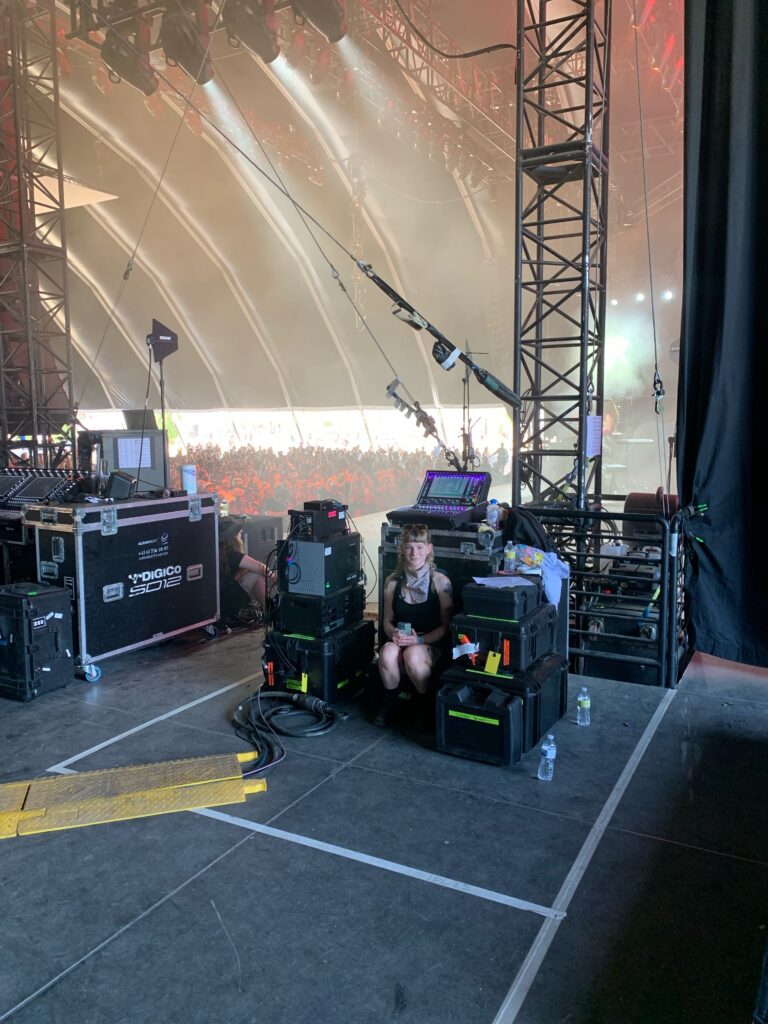
What are some ways in which you stay organized and focused?
I label everything! I try to streamline wherever I can by labeling or looming. I also try to exclusively use velcro cable wraps to keep cables organized. Smart devices are modern marvels. I use my Apple Watch to set reminders and timers for myself. I also wouldn’t survive without Google Calendar. On my iPhone, I will set one of my dock’s apps to Master Tour, which I check more than any social media app at this point. I also constantly write notes to myself to document things I need to remember and create lists. As for personal organization, I try to take a few minutes every day to clean up my areas. I will make my bed every morning on the bus and try to make sure my space is tidy and my dirty laundry is put into a laundry bag. Either post soundcheck, or during load out (if I have a second) I’ll try to make sure everything is neat & organized. My goal with my spaces is that anyone looking for something can either look in a drawer and see it or ask me and I can tell them exactly where it is.
What are some of your favorite day-off activities?
I love going on hikes, exploring museums, thrifting, and doing group activities. A day hanging out with friends is a day well spent. Doing anything together with my buds on the road is extremely refreshing and fulfilling to me. I also love to just sit in a hotel room and watch Netflix, do a proper self-care routine, and have a long shower.
Do you have short- or long-term goals that you’d like to share?
A short-term goal of mine would be to keep a healthy workout habit while out on tour. This next one is a little intimate, but a long-term goal of mine is to figure out how to start a family in the coming years and maintain my career. It’s something I’m actively seeking advice on, so if any industry moms are reading, please hit me up.
Do you have any advice for women/non-binary folks entering the audio industry?
First and foremost; treat every woman and non-binary person you meet as if y’all are in some secret club. Don’t fall into the trap of viewing them as competition, we have enough of that. We are on the same team. Work together, learn together, help each other out. They are the only people who can understand what adversities you are facing. Second, always be mindful that we as non-men are going to be held to a different standard, so always bring your best. A lot of men automatically find us intimidating, even if they don’t mean to. People can be unkind when they feel threatened, so they’ll grab at straws to try and bring others down. Third, choose your battles. “Mansplaining” for example, is extremely annoying. Instant headache. It’s tiring to deal with, but in many cases, you have to be the bigger person and not let it get to you. I believe in saving energy, and only calling out those that are asking for it. However, this goes without saying, but don’t let anyone be mean or disrespectful to you, and never tolerate sexual harassment. Lastly, never forget why you are doing the job. Audio is an art form, and it’s a labor of love. This industry (especially anything live) is a tough one to be in. We do this because we love it.
What are some of your favorite “must-have” skills?
I love this question! I think the ultimate skill is being NICE and knowing how to ask questions. I wouldn’t mind at all if I never worked with another grumpy sound person again, and I’m glad that archetype seems to be dying out a little. Coming into a venue, I would rather have my house person know little, but be inquisitive and pleasant, than having someone who seems bitter about being paid to be there, or someone who means well, but doesn’t know when to say “I’m not sure what you’re asking for” or “Could you show me how you want this done.” The other more literal “must haves” would be to have some knowledge of frequency recognition. Not that anyone has to be like “oh that 2.5 khz in the guitar is driving me crazy”, but like knowing if something sounds “muddy” or too “sibilant”, and where to search for that. Rational Acoustics has a great bumper sticker/t-shirt logo called “The Seven Bad System Dwarves” which is a great visual representation of naming what you are hearing. Getting good at it can make it much easier to ring out stage monitors too. The biggest baseline “must-have” skill is undoubtedly knowing signal flow and being able to (calmly) troubleshoot. That is where the signal starts (microphone), where it ends up (speaker), and the path it is going in between (XLR, stage box, split, mixer). Knowledge of signal flow is essential to troubleshooting a system.
Any gear/gadget favorites?
I love my Sound Bullet, it’s so handy for troubleshooting, or going through and testing cables – and it’s smaller than a Q-box. My P-Touch Cube labeler was a life-changing investment. I love that you can connect to it via Bluetooth & the app saves all your recent labels. My Leatherman Wave (I don’t like the spring of a Gerber) is my most reliable tool, but I wish I had it in pink. I have this little duster guy (Hin from Howl’s Moving Castle) that makes me smile when I see it. Dusters are very helpful, especially during a very dusty festival and the days after. The Hoto 4-in-1 rechargeable compressed air capsule (it blows and sucks!) is a new addition, but I’m excited to take it out. I got it for my husband, but it worked so well that I stole it for a tour. I have a Ryobi drill that is small and USB-C rechargeable – I like that it’s light and doesn’t take up much room in my pelican. There are lots of mics I like, so I’m gonna tell you the one I don’t like. I don’t like the Beta 52 on its own, I mean, as an out it’s fine, but to use it by itself without an in? Mid. I will shout out Se, their mics are gaining a lot of popularity and for good reason. I love their stuff, especially the V7 vocal mic & V-Kick. Shure is also always a solid brand (even if I beef with the B-52 on its own). We got a pair of Shure 313s (pretty ribbons with a red grill), which we use on guitar amps with JBrekkie and Alex G. We paired them with SM57’s and it’s just phenomenal. The 313 adds such warmth – it even managed to get a compliment from a guitarist using IEMs once. Now that’s saying something! As for consoles, I like the Allen & Heath D-Live, especially the CTi1500. It’s small, but a powerhouse. It has my favorite workflow, it’s very intuitive. It feels like it has combined many good features of other digital desks. I appreciate that A&H listens to their consumer base and tries to improve based on their end user’s experience. Onboard-wise, the Point Source Enhancer (PSE) as an option for gates is a game changer on a noisy stage. Also, I use the heck out of the Dyn-8 multiband comp/dynamic eq.
What’s in your backpack/pelican? Any fun clothing items that you can’t live without at work?
In my backpack: laptop, folder for stage plots/input lists, an organizer for chargers/essential cables, Pinecil Soldering Iron, my Sound Bullet (TSA will always think it’s a vape and I should probably put it in my pelican), Nintendo Switch, Analogue GameBoy, my IEMs (JH16v2), ear protection, foldable tote bag, tiny cosmetics pouch (inside is hand cream, facial mist, lip balm, perfume, dental floss).
Pelican: RF Explorer, talkback (SeV7 Switch), hot pink 6ft XLR with black Neutrik connectors, assortment of audio adapters, turnarounds, Y’s, and cables, Sharpies, several USB sticks, headlamp, flashlight, hearing aid vacuum, alcohol wipes, assortment of tapes, headlamp, spare IEM’s, 4-in-1 air compressor (doubles as a vacuum), small drill, soldering iron, small vice grip, solder, extra iron tips, fanny pack with gloves, wire strippers, flush cuts, microdriver (for cable creation, microdriver is essential for phoenix connectors & also straightening out the wires inside a CAT cable). I also keep a “self-care” kit: body wipes, sunscreen, hand cream, body spray, spf lip balm, tide sticks, lint roller, ointments, bandaids, Listerine (doubles as mic cleaner in a pinch), Advil, tampons, hair ties. Everything in my pelican is inside a bag or case. I use Klein tool bags to hold different collections of things, as well as Pelican micro cases to hold adapters and small things that I want extra protected. I like the quality of the microcases, but they are a tad heavy. Also, I have three pelicans: mic pelican (this one is waiting for the day I pick up a Foh tour), a small pelican for short-term gigs, and the Green Monster. Green Monster is a Pelican 1615 Air. I love her, but she gets above flyweight a little too fast. Oh! Small stature person hack: grip tape on the face of your pelican! Gives you a sturdier ego riser 🙂
As for fun clothing items (or general tour items), I cannot live without: I want to be buried in my Patagonia rain jacket and Tilley hat. Lifesavers for outdoor gigs! I like Bombas socks, Lulu Align Leggings, big oversized sweatshirts, and Brooks sneakers. Saving your feet is very important. Buy socks that are comfortable on your feet, and bring two pairs of comfortable, well-fitting shoes to alternate between. I always bring a heating pad, a foldable yoga mat, and resistance bands for working out. I also keep a lacrosse ball handy to roll out any knots or sore muscles.
Also, wanna take a second to shout out Amy Truong (@amytrng on instagram), they share so much information in terms of well-priced gear/clothing, audio info, label creations, RF workflow, and Costco finds. I live for their reviews, recommendations, Disney thrift finds, and their entire audio journey. Go follow them!!!
Do you have any certifications/memberships you’d like to spotlight?
I just took the Rational Acoustics Smaart Essentials course. Although I’m not a certified user because I haven’t taken the test (I wanna practice first), the class itself was extremely informative.
Tell me about something you wish you could change about the touring industry?
I wish there was a union or something for freelance engineers. It would be nice if we could earn healthcare and vacation time or something.
Any shout-outs or thank-yous you’d like to include?
Shoutout to my folks, One F Jef and Dawn McLaughlin – thanks for always supporting me and being the fantastic people you are. Huge shoutout to my Local 917 family in Atlantic City! Love y’all. Shoutout to the Brooklyn Bowl in Fishtown crew, and Local 8. Giant shoutout to Rachel Dispenza, you are a gem and I love us learning together and being able to tour with you. I am so appreciative of you my friend <3 A big thank you to Michelle: thanks for giving this small-town AC girl a chance to tour with the big dogs awoooo. Thank you to Deven, Katie, Kat, Collen, and Tim. Thank you TORI!!!!! Shoutout to all my wonderful audio leads in AC: Chris Carll, Timmy Antolini, and Dan Curley! Thanks to everyone in JBrekkie, Alex G, and Jessie Murph.
Starr’s Instagram: @good.on.mons
Victoria has worked in Live Sound for over eleven years and is currently on tour as a monitor engineer with Jason Isbell & the 400 Unit and works with Sylvan Esso as a monitor engineer. In addition, she works for Big House Sound, Inc. and Sound Image.
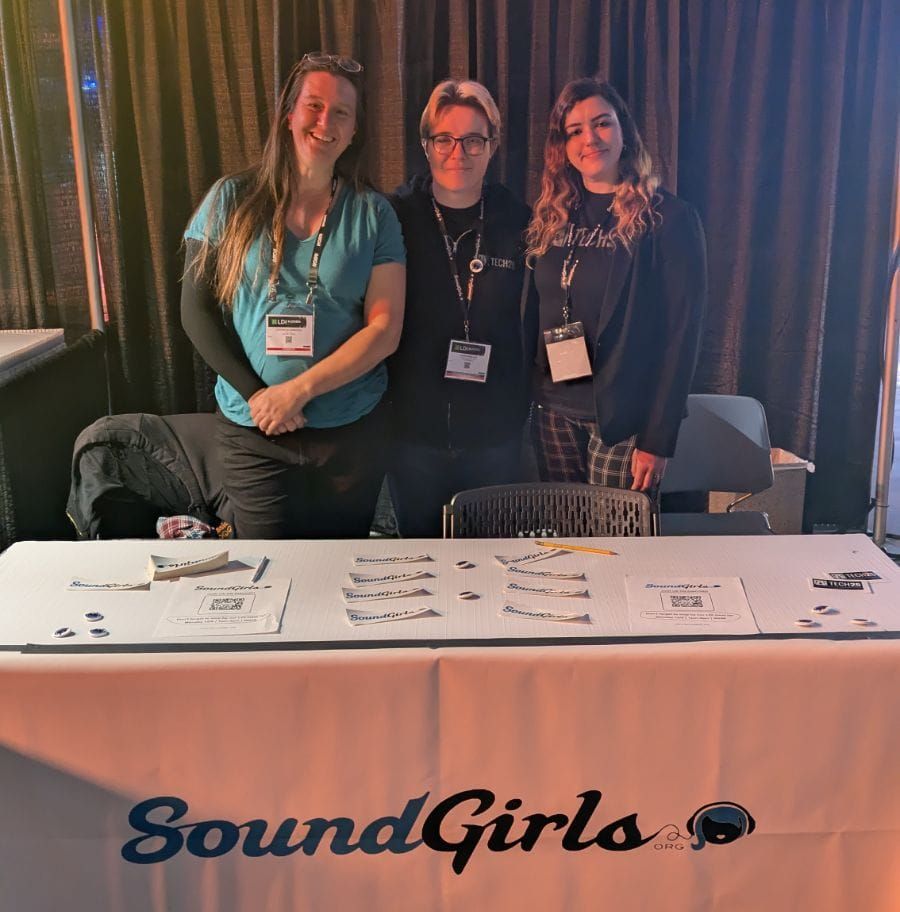
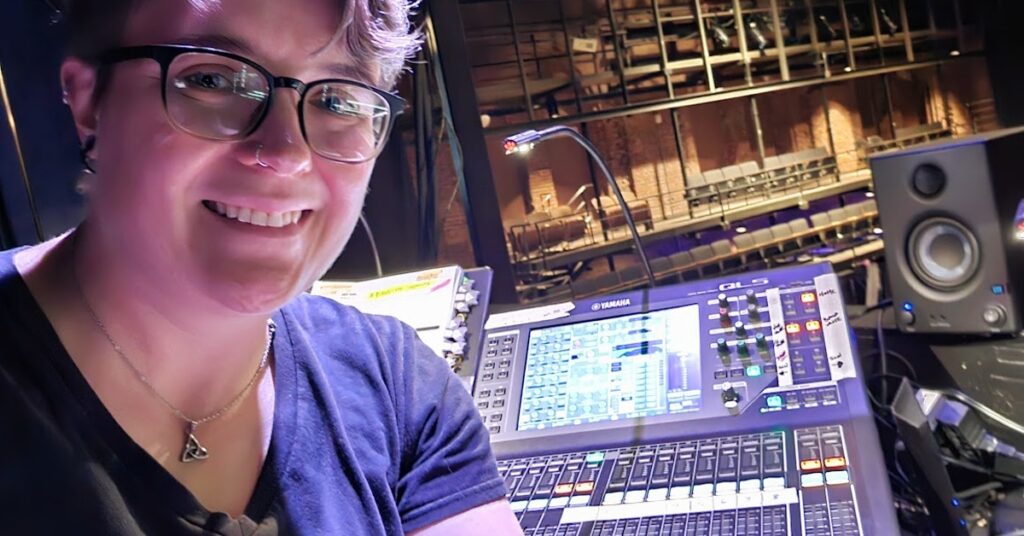
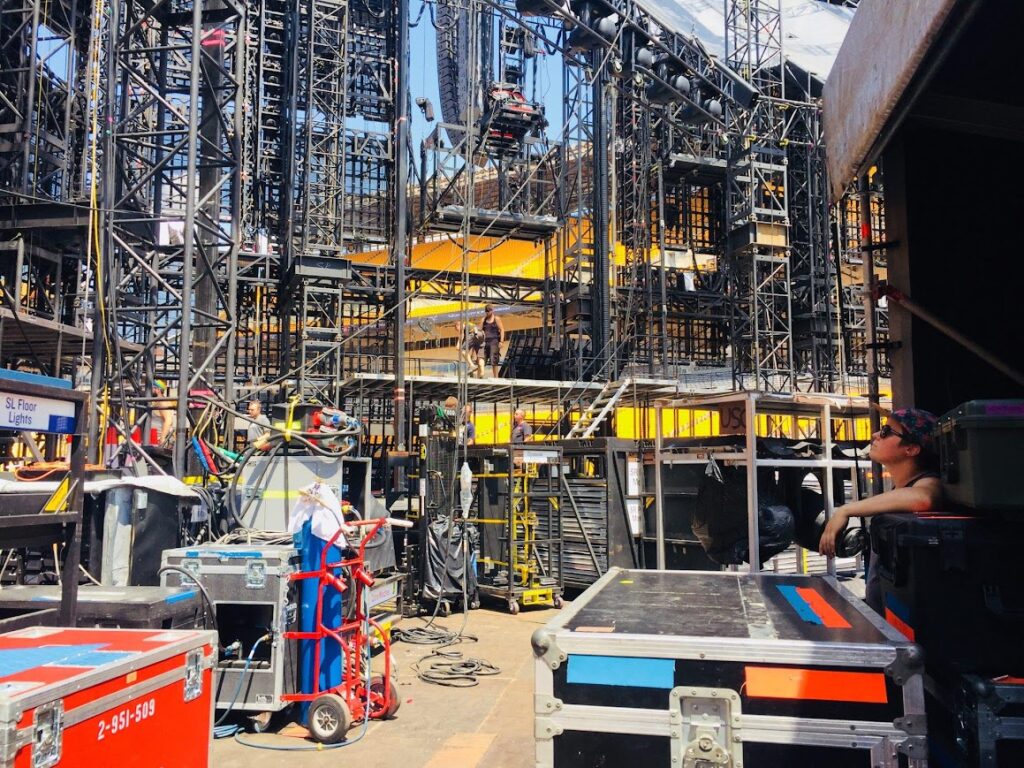
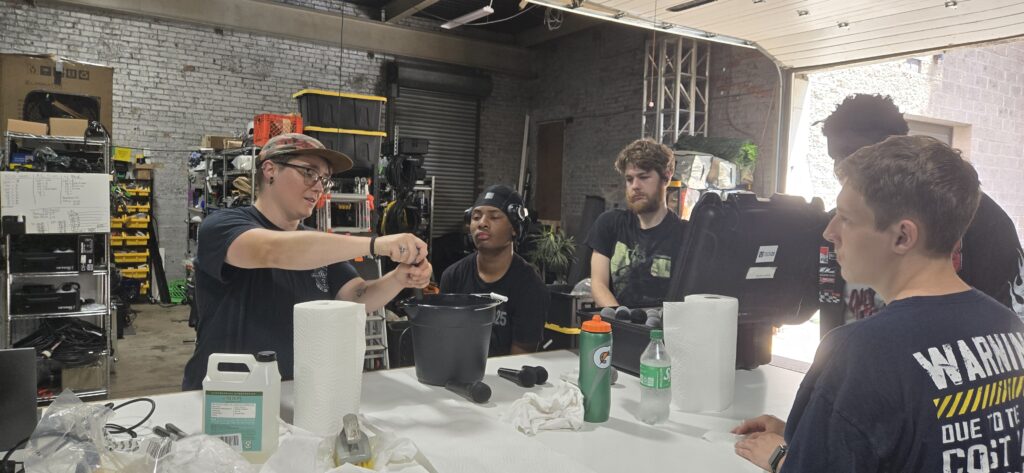
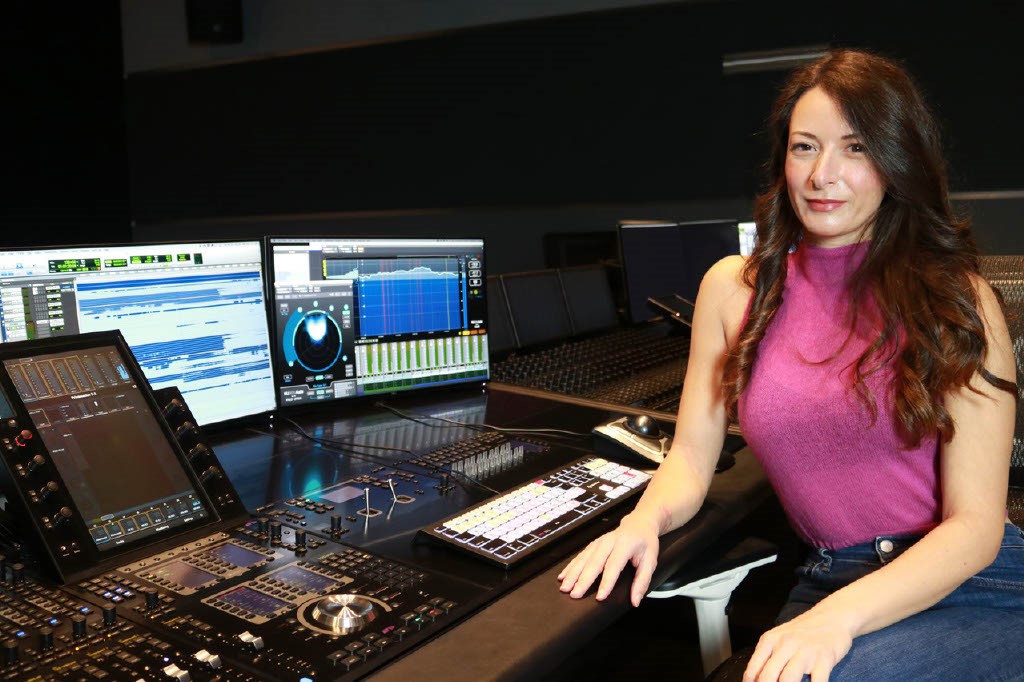
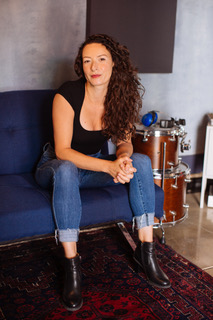
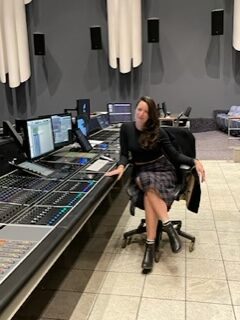
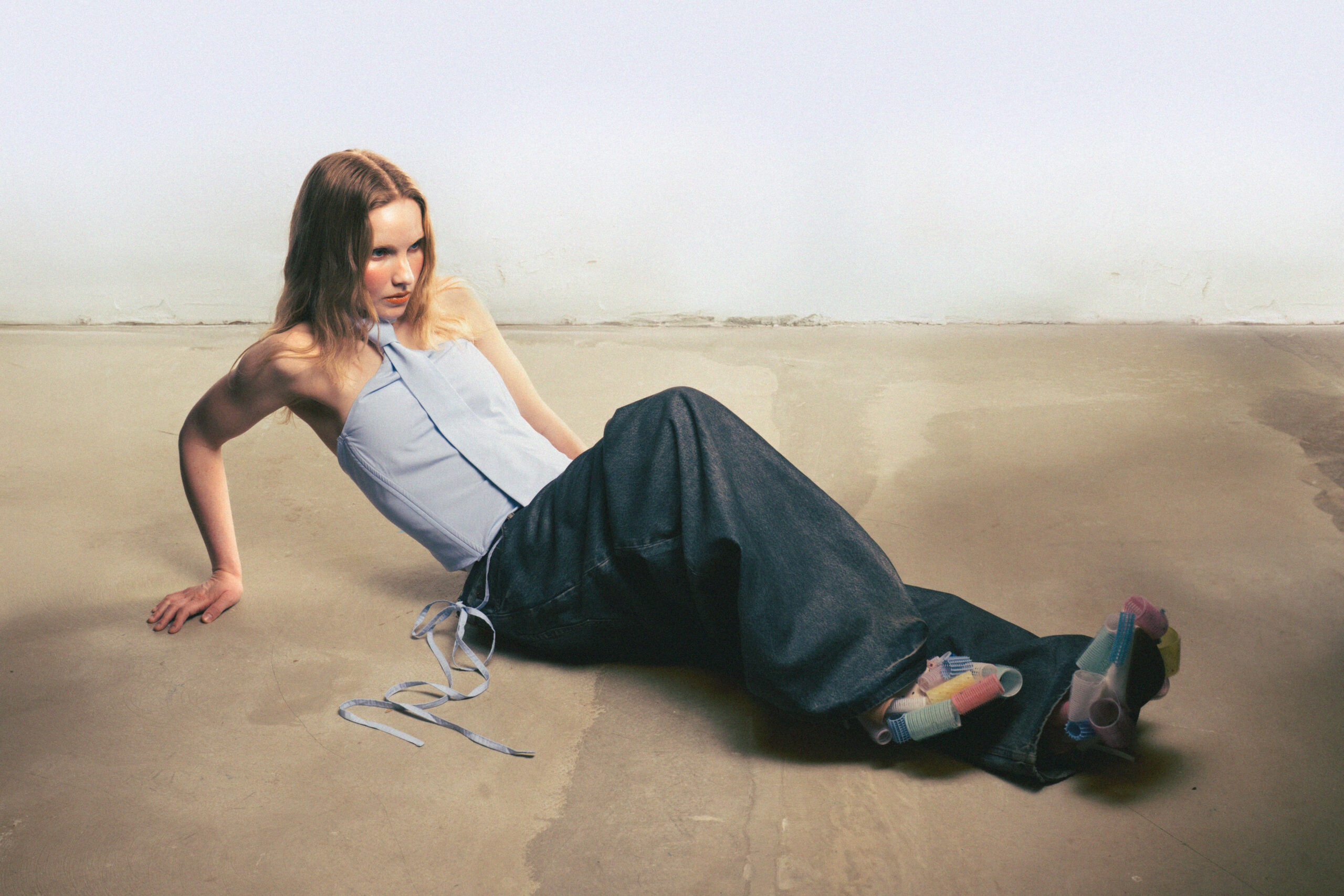
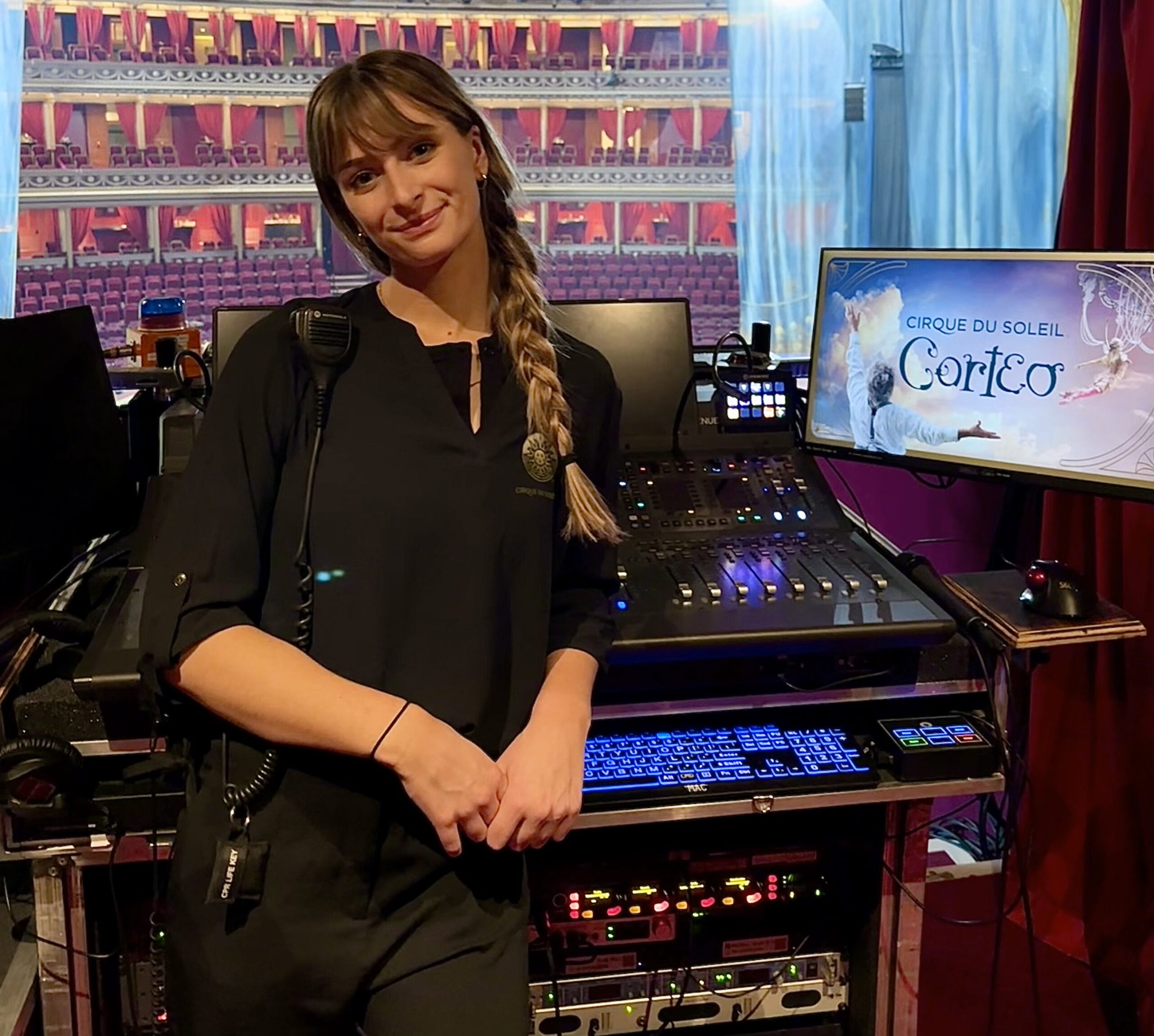
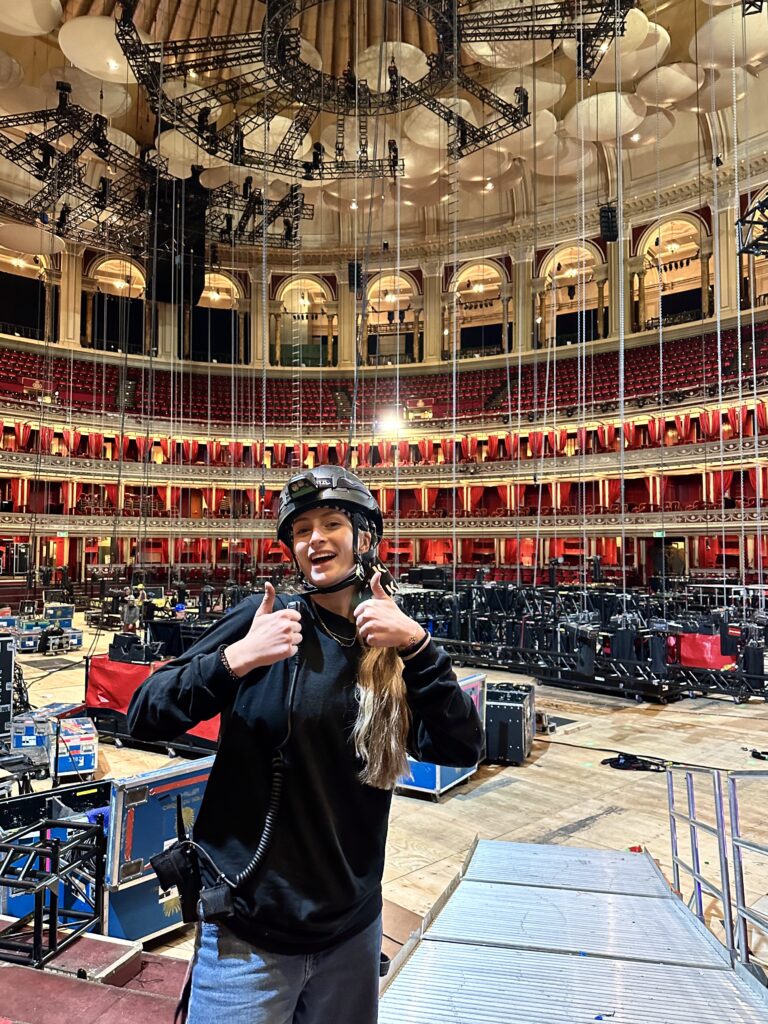
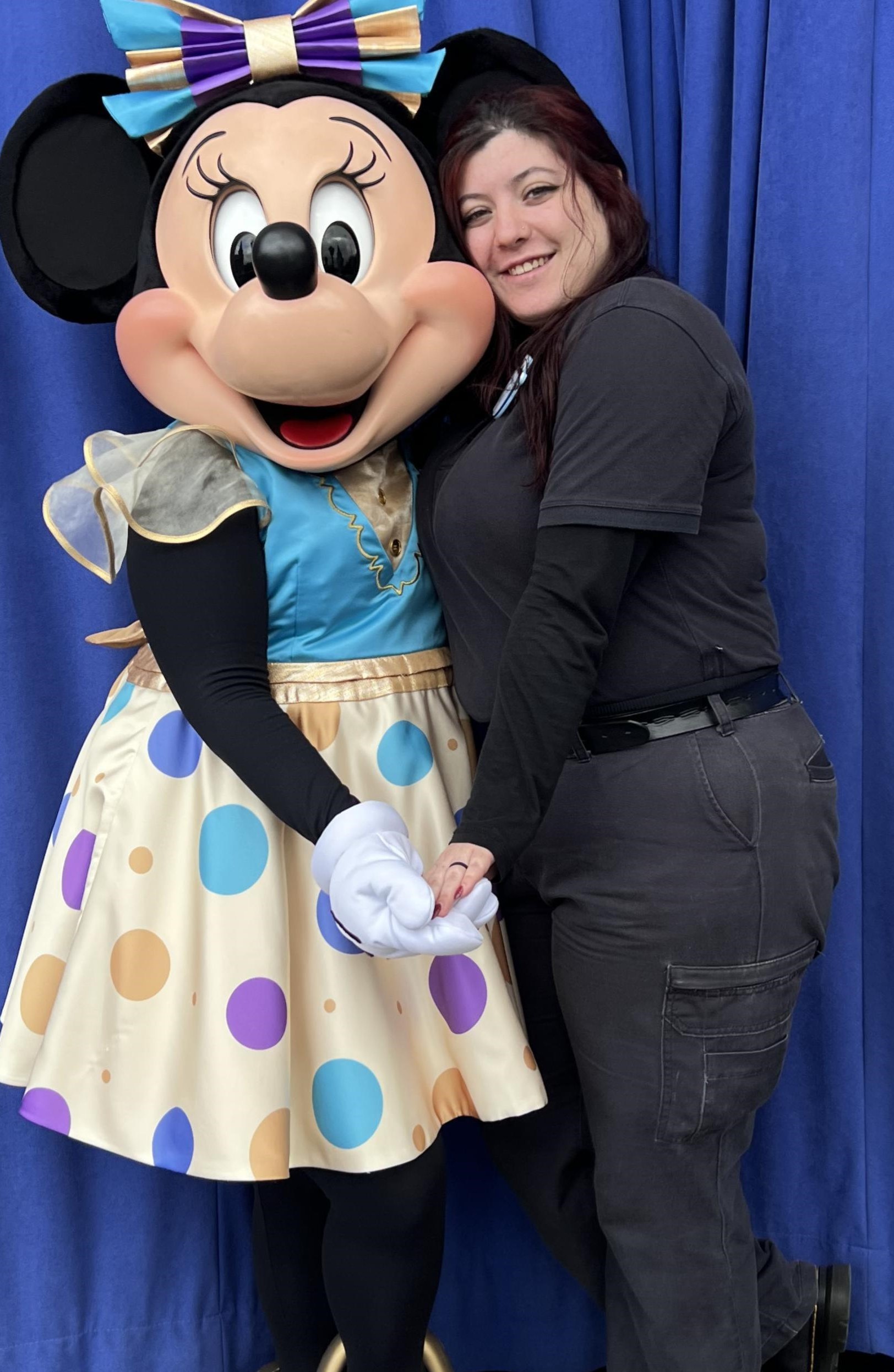
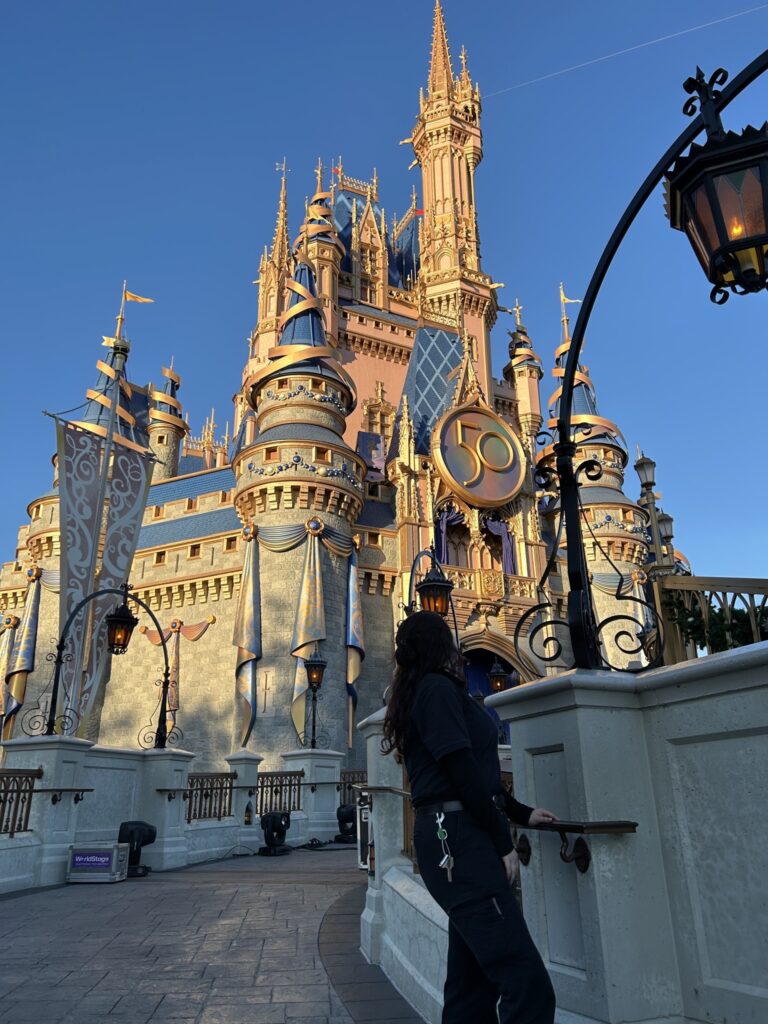
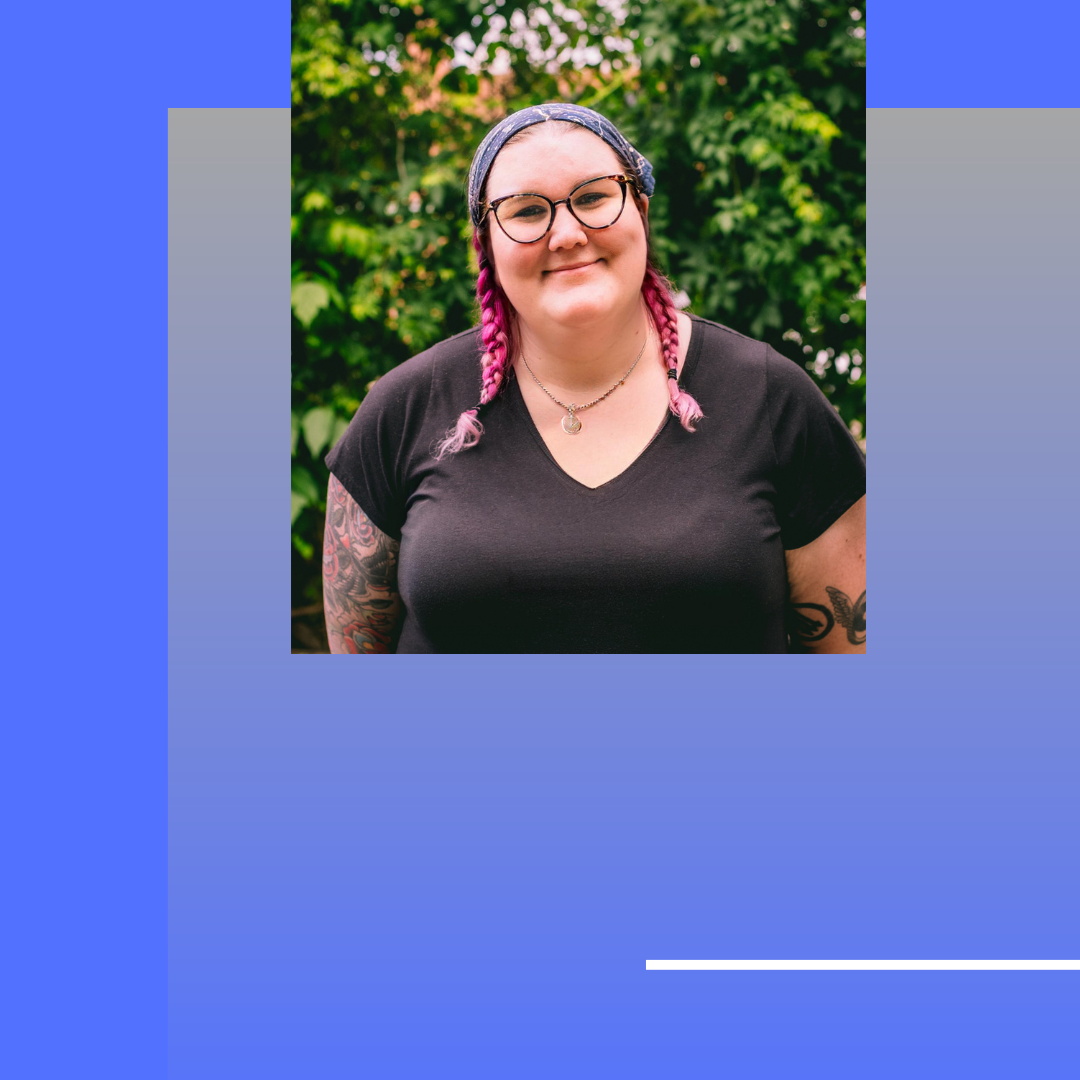
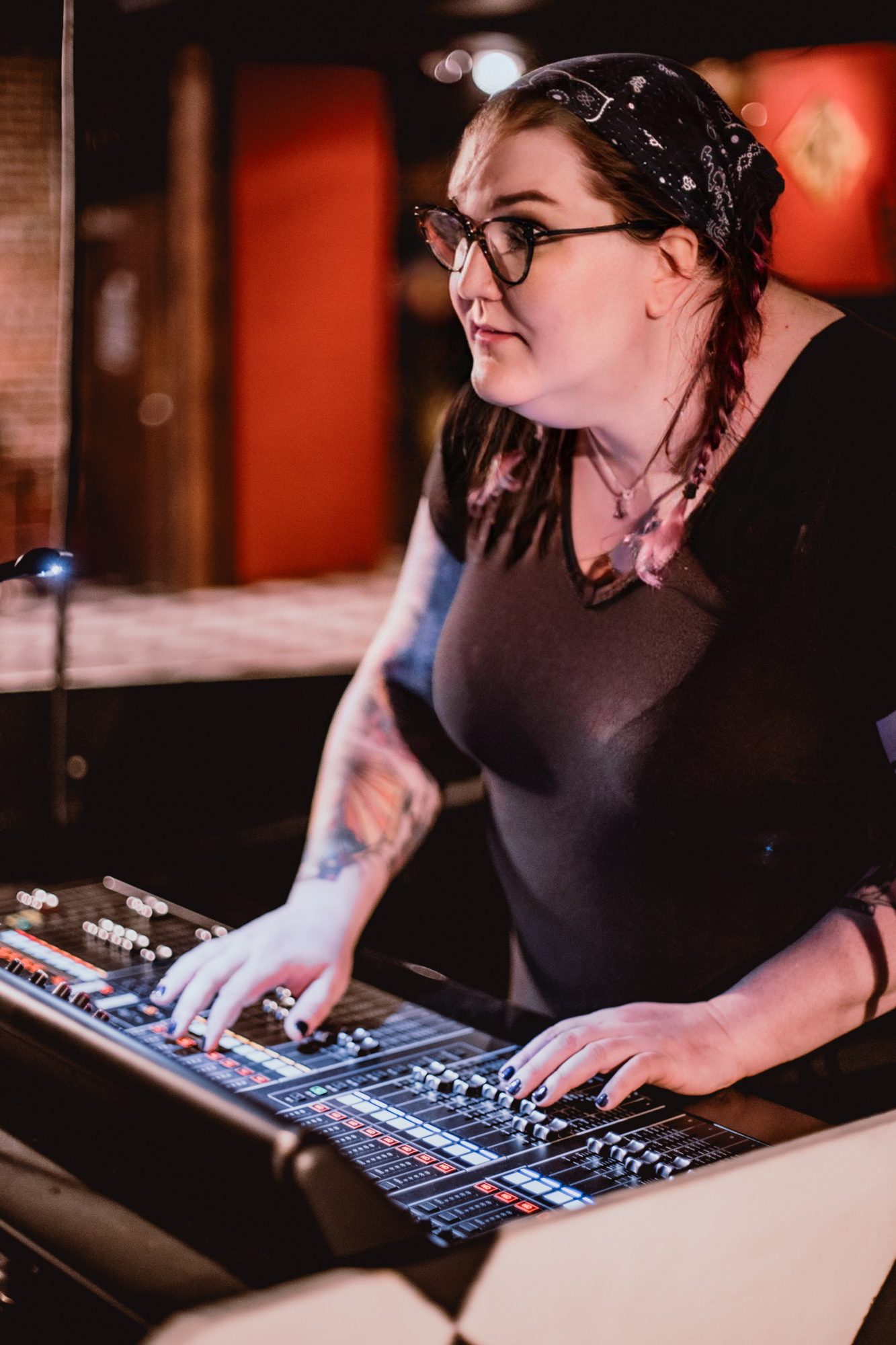
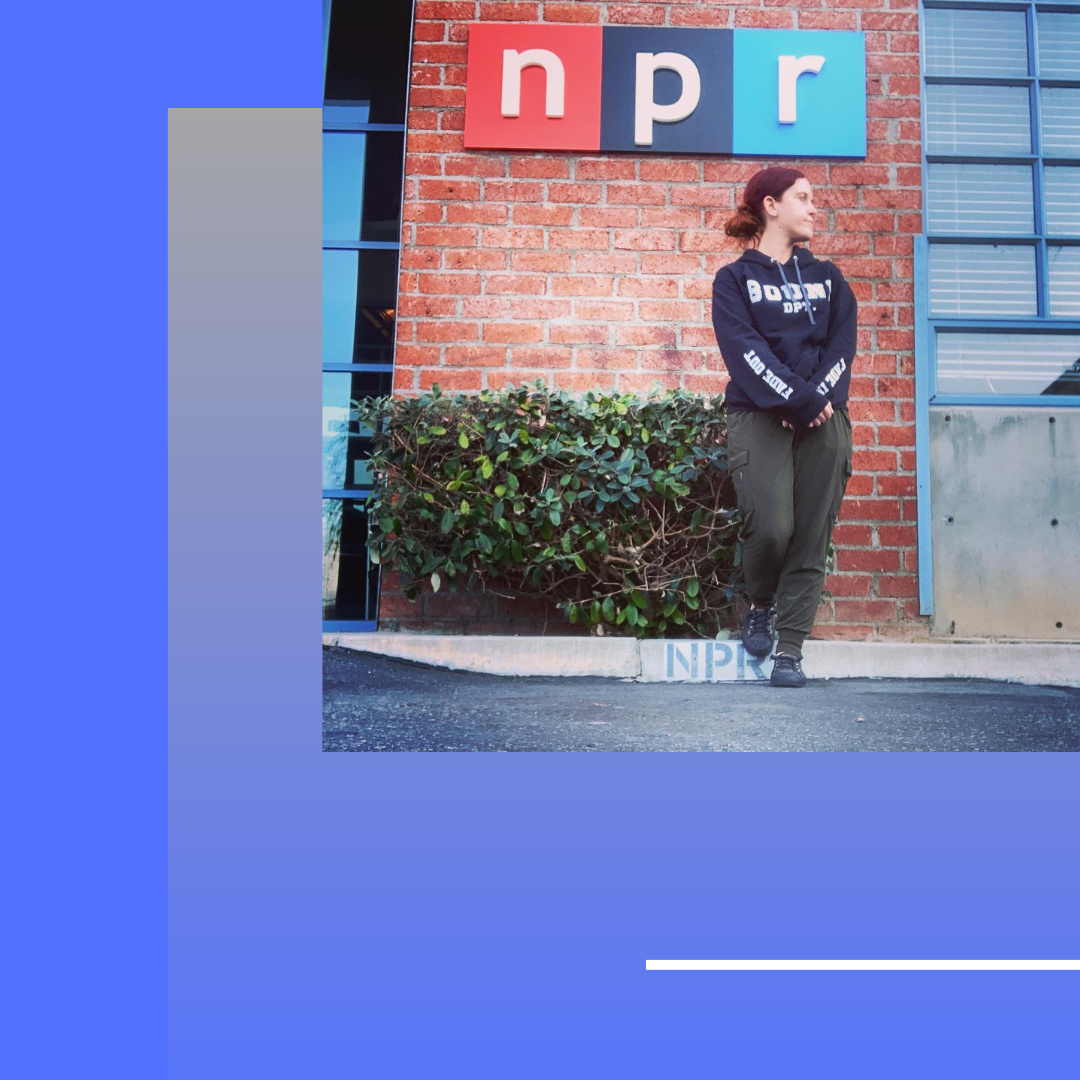
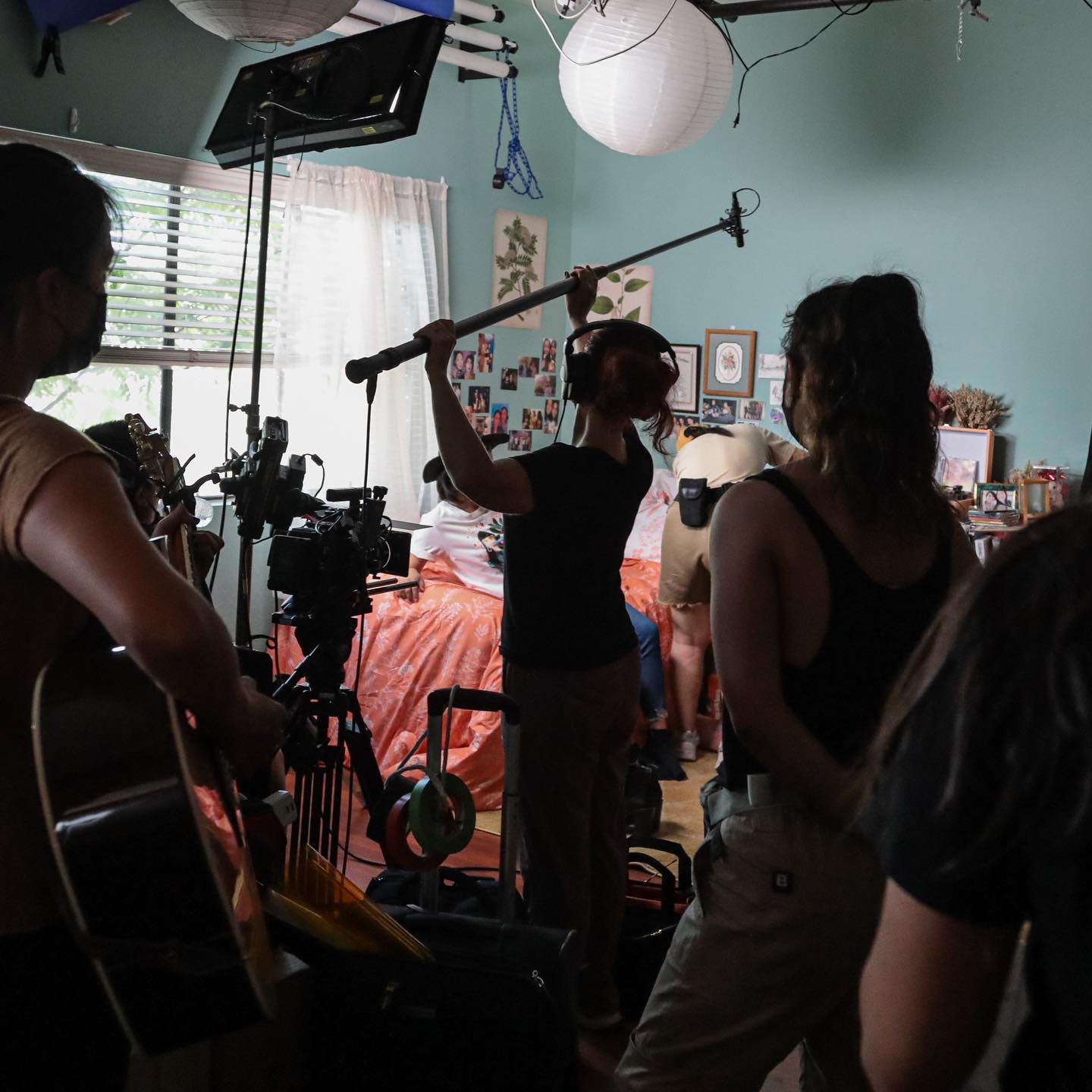
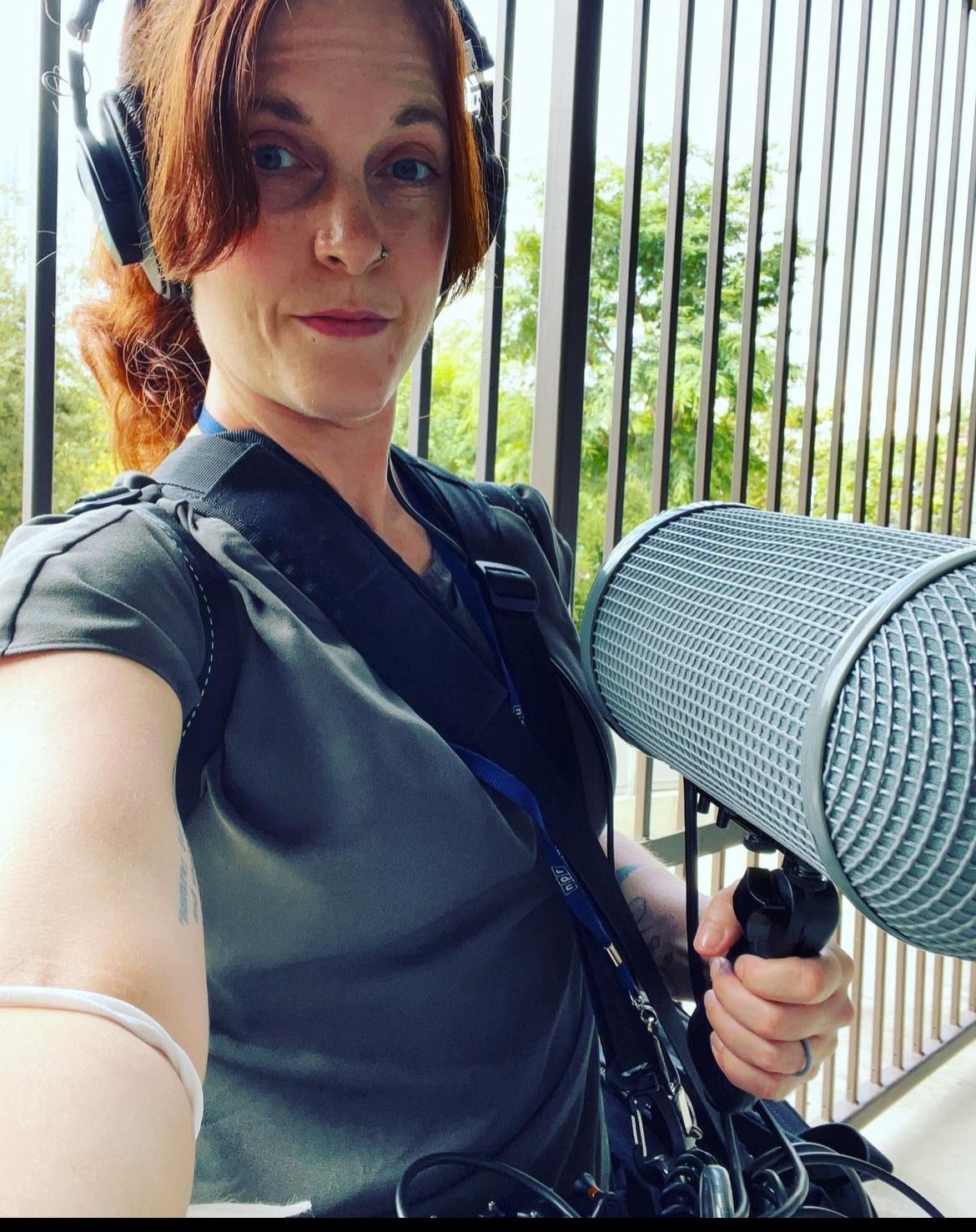
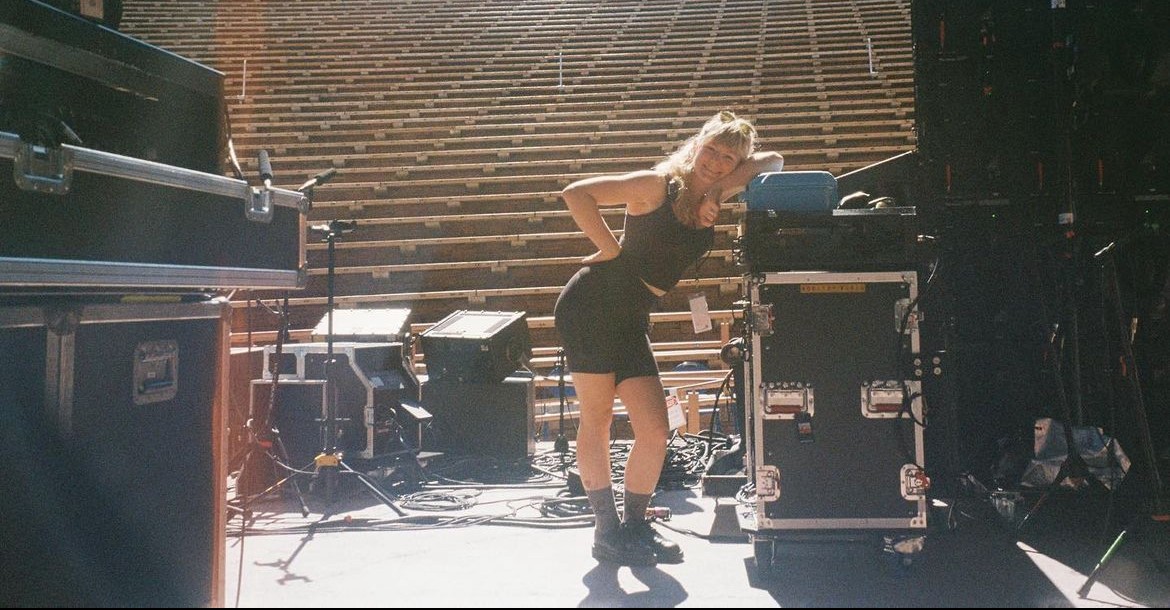


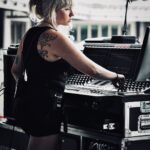 Profile by Victoria Butash
Profile by Victoria Butash